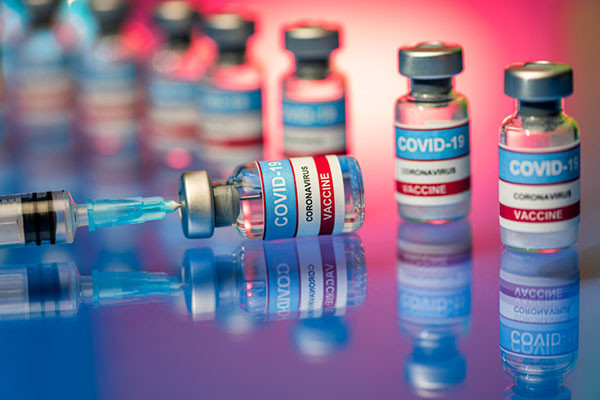COVID-19 Vaccines: Understanding Types and the Importance of Vaccination

The development and distribution of COVID-19 vaccines have been groundbreaking achievements in the global battle against the pandemic. These vaccines offer hope for a return to normalcy, but understanding their types and the importance of widespread vaccination is crucial in the fight against the virus.
Types of COVID-19 Vaccines

Several types of COVID-19 vaccines have been developed worldwide, each using different approaches to stimulate the immune system. Here are the primary types:
- Messenger RNA (mRNA) Vaccines: Vaccines like Pfizer-BioNTech and Moderna use a small piece of the virus’s genetic material (mRNA) to instruct cells to produce a harmless spike protein found on the virus’s surface. The immune system then recognizes this spike protein as foreign and generates an immune response.
- Viral Vector Vaccines: AstraZeneca and Johnson & Johnson’s vaccines employ a harmless adenovirus to deliver a piece of the COVID-19 virus’s genetic material into cells. This, too, triggers an immune response without causing illness.
- Protein Subunit Vaccines: Novavax and other candidates use harmless pieces of the virus (typically spike proteins) to stimulate an immune response. These pieces do not contain live virus.
- Inactivated or Live Attenuated Vaccines: Some vaccines, like the Sinopharm and Sinovac vaccines from China, use inactivated virus particles or weakened live virus to trigger immunity.
The Importance of Vaccination
Vaccination against COVID-19 is not just a personal choice; it’s a collective responsibility. Here’s why widespread vaccination is vital:
- Herd Immunity: When a significant portion of a population becomes immune to a disease, it provides indirect protection to those who are not immune. Achieving herd immunity through vaccination can help stop the virus’s spread.
- Reducing Transmission: Vaccinated individuals are less likely to transmit the virus to others, which can curb community transmission.
- Preventing Severe Illness and Death: COVID-19 vaccines have proven highly effective at preventing severe illness, hospitalization, and death caused by the virus. They provide a crucial safety net for healthcare systems.
- Ending the Pandemic: Widespread vaccination is a key step toward ending the pandemic and returning to a semblance of normal life.
- Protecting Vulnerable Populations: Vaccination protects those who are at higher risk of severe illness, such as the elderly and individuals with underlying health conditions.
- Stopping Variants: Reducing the virus’s circulation through vaccination can slow down the development of new variants.
Addressing Concerns
Vaccine hesitancy and concerns about side effects are understandable. However, it’s essential to rely on accurate information from reputable sources. Vaccines undergo rigorous testing in clinical trials to ensure safety and efficacy.
Common side effects, such as mild fever or soreness at the injection site, are generally short-lived and far less severe than the potential consequences of a COVID-19 infection.
Conclusion
In conclusion, COVID-19 vaccines are a powerful tool in our fight against the pandemic. Understanding the various types and embracing the importance of vaccination can help us move closer to the ultimate goal: bringing an end to this global health crisis. Vaccination is not just a personal choice; it’s a collective responsibility to protect ourselves and our communities.



